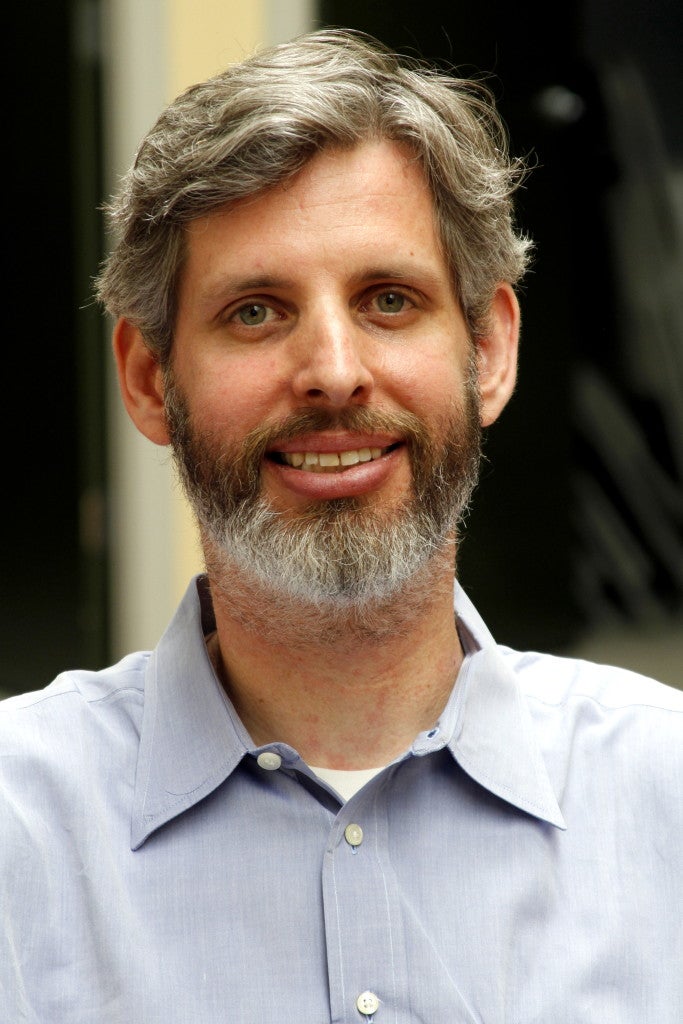Harvard Law School Dean Martha Minow has appointed Clinical Professor Daniel Nagin as Vice Dean for Experiential and Clinical Education.
In that role, Nagin will help to further expand the Law School’s extensive offerings in the area of experience-based learning, and he will work to develop new initiatives drawing upon the school’s wide array of clinics, student practice organizations, and other opportunities for learning through hands-on experience.
Nagin is Faculty Director of the Law School’s WilmerHale Legal Services Center and also of the Center’s Veterans Legal Clinic, which he founded in 2012. He will retain those positions as he assumes his new role effective July 1.
“As numerous studies undertaken by our profession and our own internal studies have shown, experiential learning helps our students enter the world more ready to contribute meaningfully from day one,” said Minow. “I asked Dan to take on this important new role because of his innovative work in establishing the Veterans Legal Clinic at Harvard Law School, his excellent stewardship of the WilmerHale Legal Services Center, and his thoughtful work with faculty committees focused on clinical programs and experiential learning. He will help Harvard Law School build upon and continue its leadership in the increasingly important area of experiential education.”
Nagin will work closely with Dean Minow, the faculty, students, and Lisa Dealy, assistant dean for clinical and pro bono programs, to foster innovation in experiential learning.
“I am continually inspired by the innovative experiential teaching and learning that takes places across the Law School’s classrooms, clinics, and community settings,” said Nagin. “I look forward to working with colleagues, students, and other partners in whatever way I can to help the Law School build on this exceptional foundation.”
Harvard Law School has been a pioneer in the development of experiential and clinical education. In addition to 16 in-house and 10 externship clinics (in which 75% of the class of 2015 participated), the Law School has also launched numerous simulation classes – including the path-breaking Problem Solving Workshop, which asks first-year students to work in teams to construct solutions to legal problems typically presented by clients.
HLS also offers upper-level courses such as the Trial Advocacy Workshop and the Negotiation Workshop, which together draw hundreds of students each year, as well as numerous smaller courses that offer simulations in litigation, business transactions, and quantitative methods essential to the modern practice of law. The Law School’s experiential program also encompasses 11 Student Practice Organizations, which provide legal services through voluntary participation in student-run organizations, and a vast array of upper level moot court, legal drafting, and negotiation competitions.
In response to guidance from the American Bar Association and the California Bar for all law schools, Minow appointed an Ad Hoc Committee on Experiential Learning to assess the HLS program. Said Minow, “The committee focused on identifying opportunities for growing, enhancing, and ensuring the broadest distribution of experiential opportunities at Harvard Law School. The committee made a wide variety of recommendations about not only how to enhance our already extensive clinical and simulation opportunities, but also how to foster new avenues of faculty-student collaboration in student-run experiential programs such as moot courts. The committee generated a great many proposals to make a strong program of experiential education even stronger. I am delighted and grateful that Dan Nagin will help us build on that work.”
